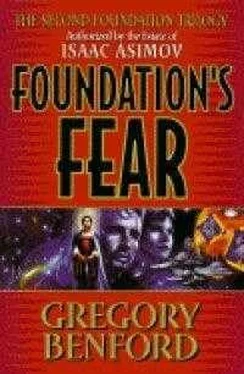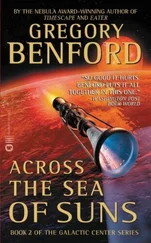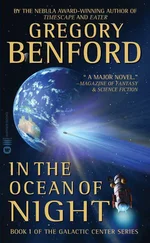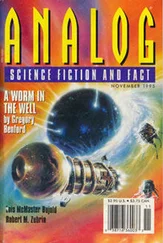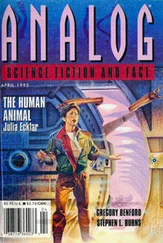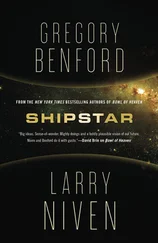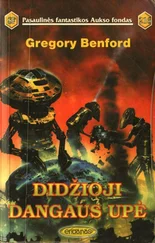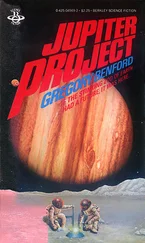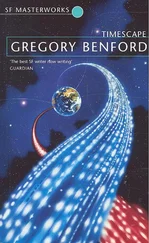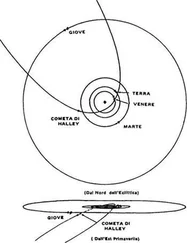Gregory Benford - Foundation’s Fear
Здесь есть возможность читать онлайн «Gregory Benford - Foundation’s Fear» весь текст электронной книги совершенно бесплатно (целиком полную версию без сокращений). В некоторых случаях можно слушать аудио, скачать через торрент в формате fb2 и присутствует краткое содержание. Год выпуска: 1997, ISBN: 1997, Издательство: Orbit, Жанр: Фантастика и фэнтези, на английском языке. Описание произведения, (предисловие) а так же отзывы посетителей доступны на портале библиотеки ЛибКат.
- Название:Foundation’s Fear
- Автор:
- Издательство:Orbit
- Жанр:
- Год:1997
- ISBN:ISBN: 0-06-105243-4
- Рейтинг книги:4 / 5. Голосов: 1
-
Избранное:Добавить в избранное
- Отзывы:
-
Ваша оценка:
- 80
- 1
- 2
- 3
- 4
- 5
Foundation’s Fear: краткое содержание, описание и аннотация
Предлагаем к чтению аннотацию, описание, краткое содержание или предисловие (зависит от того, что написал сам автор книги «Foundation’s Fear»). Если вы не нашли необходимую информацию о книге — напишите в комментариях, мы постараемся отыскать её.
Foundation’s Fear — читать онлайн бесплатно полную книгу (весь текст) целиком
Ниже представлен текст книги, разбитый по страницам. Система сохранения места последней прочитанной страницы, позволяет с удобством читать онлайн бесплатно книгу «Foundation’s Fear», без необходимости каждый раз заново искать на чём Вы остановились. Поставьте закладку, и сможете в любой момент перейти на страницу, на которой закончили чтение.
Интервал:
Закладка:
Hari felt a sudden desire to swerve, not dive into that impossibly narrow gullet.
Dors called out numbers. Computers angled them in. He adjusted with a nudge here and a twist there.
It did not help that he knew some of the underlying physics. Wormholes were held open with layers of negative energy, skins of antipressure made in the first convulsion of the universe. The negative energy in the “struts” was equivalent to the mass needed to make a black hole of the same radius.
So they were plunging toward a region of space of unimaginable density. But the danger lurked only at the rim, where stresses could tear them into atoms.
A bull’s-eye hit was perfectly safe. But an error-
Thrusters pulsed. The wild worm was now a black sphere rimmed in quantum fire.
Growing.
Hari felt suddenly the helpless constriction of the pencil ship. Barely two meters across, its insulation was thin, safety buffers minimal. Behind him, Dors kept murmuring data and he checked…but part of him was screaming at the crushing sense of confinement, of helplessness.
He felt again the gut fear that had struck him in the streets of Sarkonia. Not claustrophobia, but something darker: a swampy fear of confusion, a riot of doubt. It seized him, squeezed his throat.
“Vectors summing to within zero-seven-three,” Dors called.
Her voice was calm, steady, a marvelous balm. He clung to its serene certainties and fought down his own panic.
Squeals of last-second corrections echoed in his cramped chamber. A quick kick of acceleration-
Lightning curling snakelike blue and gold at them-
—tumbling. Out the other end, in a worm complex fifteen thousand light years away.
“That old professor…damn right, he was,” he said.
Dors sighed, her only sign of stress. “Ideas about existence pale…beside the fact of existence. Yes, my love. Living is bigger than any talk about it.”
5.
A yellow-green sun greeted them. And soon enough, an Imperial picket craft.
They ducked and ran. A quick swerve, and they angled into the traffic train headed for a large wormhole mouth. The commercial charge-computers accepted his Imperial override without a murmur. Hari had learned well. Dors corrected him if he got mixed up.
Their second hyperspace jump took a mere three minutes. They popped out far from a dim red dwarf.
By the fourth jump they knew the drill. Having the code-status of Cleon’s court banished objections.
But being on the run meant that they had to take whatever wormhole mouths they could get. Lamurk’s people could not be too far behind.
A wormhole could take traffic only one way at a time. High-velocity ships plowed down the wormhole throats, which could vary from a finger’s length to a star’s diameter.
Hari had known the numbers, of course. There were a few billion wormholes in the Galactic disk. The average Imperial Zone was about fifty light-years in radius. A jump could bring you out many years from a far-flung world.
This influenced psychohistory. Some verdant planets were green fortresses against an isolation quite profound. For them the Empire was a remote dream, the source of exotic products and odd ideas. Hyperships flitted through wormholes in mere seconds, then exhausted themselves hauling their cargoes across empty voids, years and decades in the labor.
The worm web had many openings near inhabitable worlds, but also many near mysteriously useless solar systems. The Empire had positioned the smaller worm mouths-those massing perhaps as much as a mountain range-near rich planets. But some worm mouths of gargantuan mass orbited near solar systems as barren and pointless as any surveyed.
Was this random, or a network left by some earlier civilization? Certainly the wormholes themselves were leftovers from the Great Emergence, when space and time alike began. They linked distant realms which had once been nearby, when the galaxy was young and smaller.
They developed a rhythm. Pop though a worm mouth, make comm contact, get in line for the next departure. Imperial watchdogs would not pull anyone of high Trantorian class from a queue. So their most dangerous moments came as they negotiated clearance.
At this Dors became adept. She sent the WormMaster computers blurts of data and- whisk-they were edging into orbital vectors, bound for their next jump.
Domains that encompassed thousands of light-years, spanning the width of a spiral arm, were essentially networks of overlapping worms, all organized for transfer and shipping.
Matter could flow only one way at a time in a wormhole. The few experiments with simultaneous two-way transport ended in disaster. No matter how ingenious engineers tried to steer ships around each other, the sheer flexibility of worm tunnels spelled doom. Each worm mouth kept the other “informed” of what it had just eaten. This information flowed as a wave, not in physical matter, but in the tension of the wormhole itself-a ripple in the “stress tensor,” as physicists termed it.
Flying ships through both mouths sent stress waves propagating toward each other, at speeds which depended on the location and velocity of the ships. The stress constricted the throat, so that when the waves met, a clenching squeezed down the walls.
The essential point was that the two waves moved differently after they met. They interacted, one slowing and the other speeding up, in a highly nonlinear fashion.
One wave could grow, the other shrink. The big one made the throat clench down into sausage links. When a sausage neck met a ship, the craft might slip through-but calculating that was a prodigious job. If the sausage neck happened to meet the two ships when they passed -crunch.
This was no mere technical problem. It was a real limitation, imposed by the laws of quantum gravity. From that firm fact arose an elaborate system of safeguards, taxes, regulators, and hangers-on-all the apparatus of a bureaucracy which does indeed have a purpose and makes the most of it.
Hari learned to dispel his apprehension by watching the views. Suns and planets of great, luminous beauty floated in the blackness.
Behind the resplendence, he knew, lurked necessity.
From the wormhole calculus arose blunt economic facts. Between worlds A and B there might be half a dozen wormhole jumps; the Nest was not simply connected, a mere astrophysical subway system. Each worm mouth imposed added fees and charges on each shipment.
Control of an entire trade route yielded the maximum profit. The struggle for control was unending, often violent. From the viewpoint of economics, politics, and “historical momentum”-which meant a sort of imposed inertia on events-a local empire which controlled a whole constellation of nodes should be solid, enduring.
Not so. Time and again, regional satrapies went toes-up.
Many perished because they were elaborately controlled. It seemed natural to squeeze every worm passage for the maximum fee, by coordinating every worm mouth to optimize traffic. But that degree of control made people restive.
The system could not deliver the best benefits. Overcontrol failed.
On their seventeenth jump, they met a case in point.
6.
“Vector aside for search,” came an automatic command from an Imperial vessel.
They had no choice. The big-bellied Imperial scooped them up within seconds after their emergence from a medium-sized wormhole mouth.
“Transgression tax,” a computerized system announced. “Planet Obejeeon demands that special carriers pay-” A blur of computer language followed.
“Let’s pay it,” Hari said.
“I wonder if it will provide a tracer for Lamurk?” Dors said over the internal comm.
“What is our option?”
Читать дальшеИнтервал:
Закладка:
Похожие книги на «Foundation’s Fear»
Представляем Вашему вниманию похожие книги на «Foundation’s Fear» списком для выбора. Мы отобрали схожую по названию и смыслу литературу в надежде предоставить читателям больше вариантов отыскать новые, интересные, ещё непрочитанные произведения.
Обсуждение, отзывы о книге «Foundation’s Fear» и просто собственные мнения читателей. Оставьте ваши комментарии, напишите, что Вы думаете о произведении, его смысле или главных героях. Укажите что конкретно понравилось, а что нет, и почему Вы так считаете.
